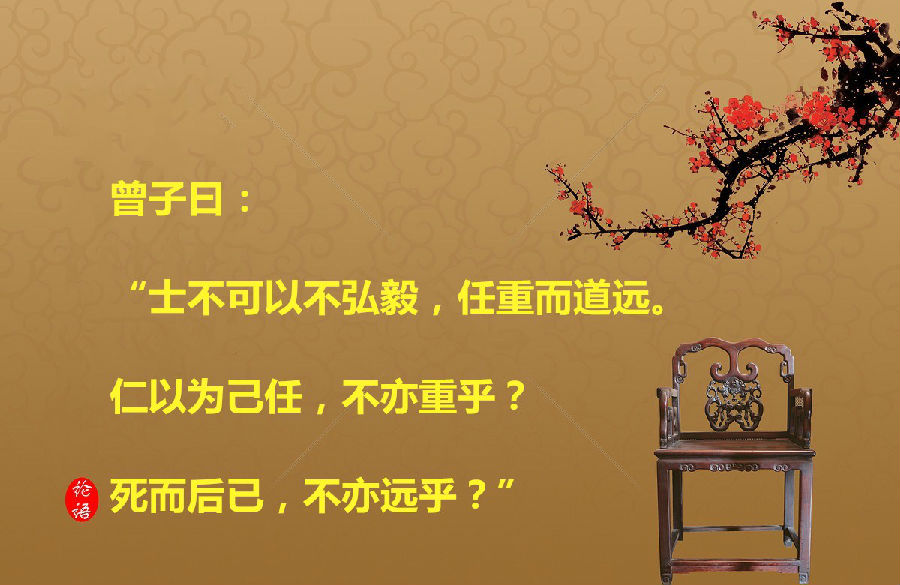The philosopher Tsang said, "The officer may not be without breadth of mind and vigorous endurance.
曾子曰:“士不可以不弘毅,
His burden is heavy and his course is long.
任重而道远。
"Perfect virtue is the burden which he considers it is his to sustain; is it not heavy?
仁以为己任,不亦重乎?
Only with death does his course stop; is it not long?
死而后已,不亦远乎?”
The Master said, "It is by the Odes that the mind is aroused.
子曰:“兴于《诗》,
"It is by the Rules of Propriety that the character is established.
立于礼,
"It is from Music that the finish is received."
成于乐。”
The Master said, "The people may be made to follow a path of action, but they may not be made to understand it."
子曰:“民可使由之,不可使知之。”

The Master said, "The man who is fond of daring and is dissatisfied with poverty, will proceed to insubordination.
子曰:“好勇疾贫,乱也。
So will the man who is not virtuous, when you carry your dislike of him to an extreme."
人而不仁,疾之已甚,乱也。”
The Master said, "Though a man have abilities as admirable as those of the Duke of Chau,
子曰:“如有周公之才之美,
yet if he be proud and niggardly, those other things are really not worth being looked at."
使骄且吝,其余不足观也已。”
The Master said, "It is not easy to find a man who has learned for three years without coming to be good."
子曰:“三年学,不至于谷,不易得也。”
The Master said, "With sincere faith he unites the love of learning;
子曰:“笃信好学,
holding firm to death, he is perfecting the excellence of his course.
守死善道。


